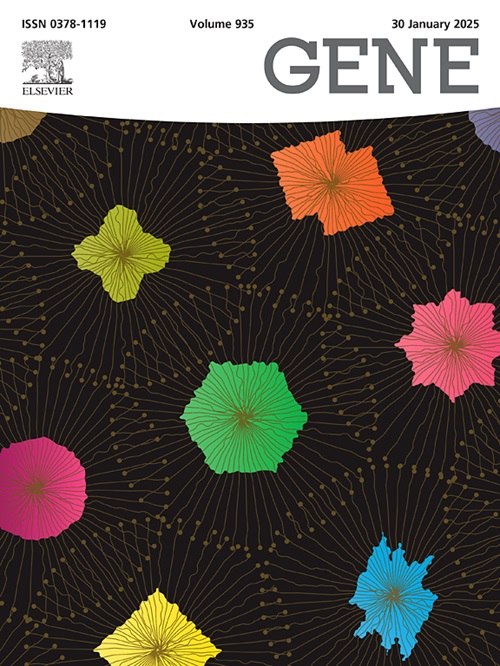间充质干细胞外泌体 miR-25 通过靶向 CXCR3 模型抑制 T 细胞迁移并缓解 1 型糖尿病。
IF 2.6
3区 生物学
Q2 GENETICS & HEREDITY
引用次数: 0
摘要
间充质干细胞(MSCs)在治疗1型糖尿病(T1DM)方面表现出了良好的治疗潜力,但其潜在机制仍不清楚。T1DM 的主要病理机制是活化的 T 细胞浸润胰腺,导致胰岛炎症和 β 细胞破坏。然而,从间叶干细胞中提取的外泌体是否能抑制T细胞向T1DM背景下的胰腺迁移这一问题仍未解决。在本研究中,我们观察到miR-25在间充质干细胞外泌体中高表达,并与细胞迁移相关的信号通路有关。在体外实验中,我们合成了miR-25模拟物,并将其瞬时转染到活化的T细胞中,结果发现miR-25能有效降低CXCR3的表达。此外,根据体内T1DM小鼠模型,我们发现使用间充质干细胞治疗的T1DM小鼠体内miR-25水平显著升高,T细胞数量减少。总之,我们的研究结果表明,含有 miR-25 的间充质干细胞外泌体可通过抑制活化 T 细胞中 CXCR3 的表达,阻止这些细胞向 T1DM 小鼠的胰腺渗透。本文章由计算机程序翻译,如有差异,请以英文原文为准。
Exosomal miR-25 from Mesenchymal stem cells inhibits T cells migration and Alleviates Type 1 diabetes mellitus by Targeting CXCR3 models
Mesenchymal stem cells (MSCs) have demonstrated promising therapeutic potential in the treatment of type 1 diabetes mellitus (T1DM); however, the underlying mechanism remains unclear. The primary pathological mechanism of T1DM involves activated T cells infiltrating the pancreas, leading to islet inflammation and the destruction of β-cells. However, the question of whether exosomes derived from MSCs can suppress the migration of T cells to the pancreas in the context of T1DM remains unresolved. In this study, we observed that miR-25 was highly expressed in MSCs exosomes and associated with signaling pathways related to cell migration. In vitro assay, we synthesized a miR-25 mimic and transiently transfected it into activated T cells, which revealed that miR-25 can effectively reduce the expression of CXCR3. Additionally, according to the in vivo T1DM mouse model, we found that there was a significant increase in miR-25 levels in T1DM mice treated with MSCs and the number of T cells decreased. Overall, our findings suggest that MSCs exosomes containing miR-25 can impede the infiltration of activated T cells into the pancreas in T1DM by repressing CXCR3 expression in these cells.
求助全文
通过发布文献求助,成功后即可免费获取论文全文。
去求助
来源期刊

Gene
生物-遗传学
CiteScore
6.10
自引率
2.90%
发文量
718
审稿时长
42 days
期刊介绍:
Gene publishes papers that focus on the regulation, expression, function and evolution of genes in all biological contexts, including all prokaryotic and eukaryotic organisms, as well as viruses.
 求助内容:
求助内容: 应助结果提醒方式:
应助结果提醒方式:


